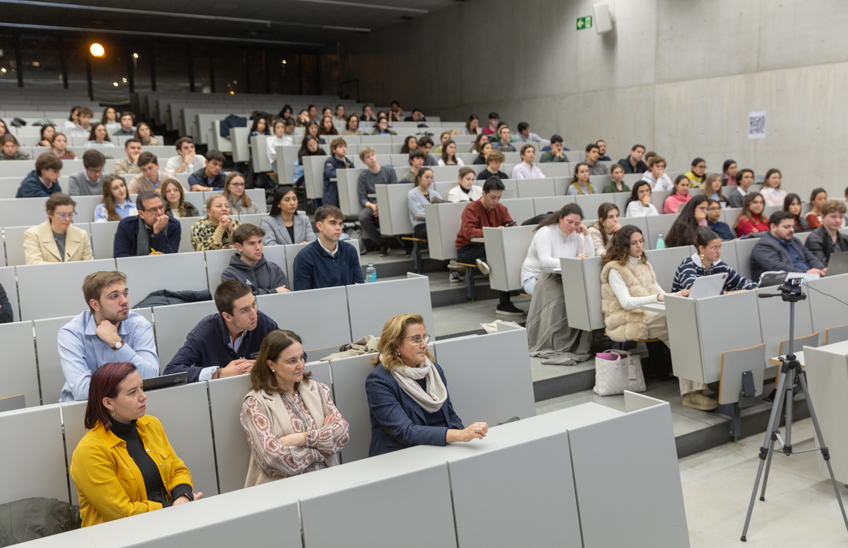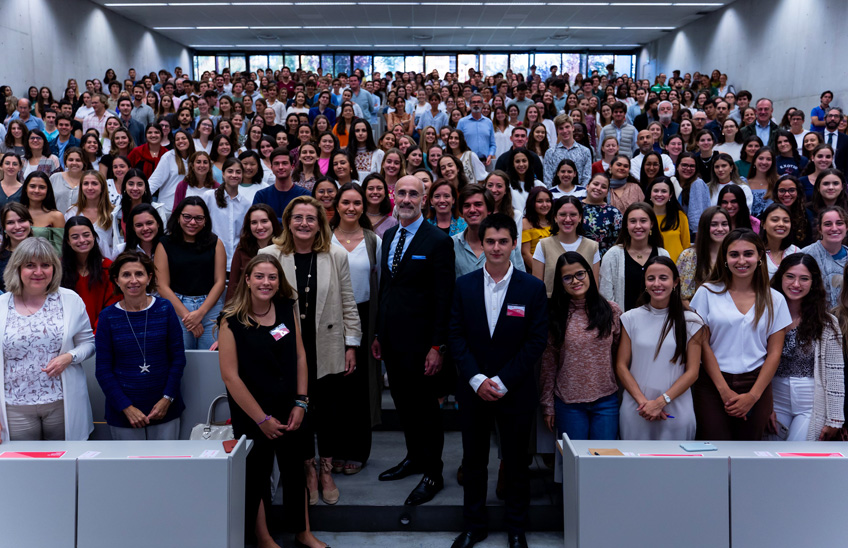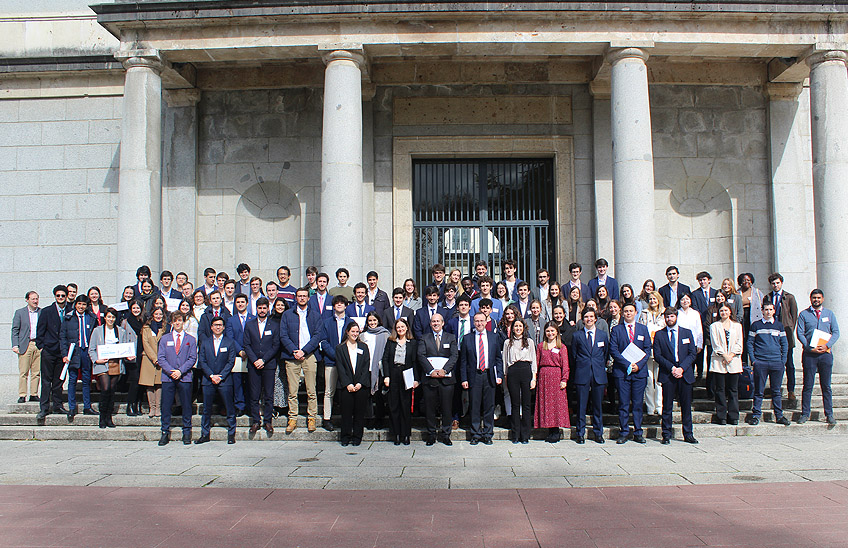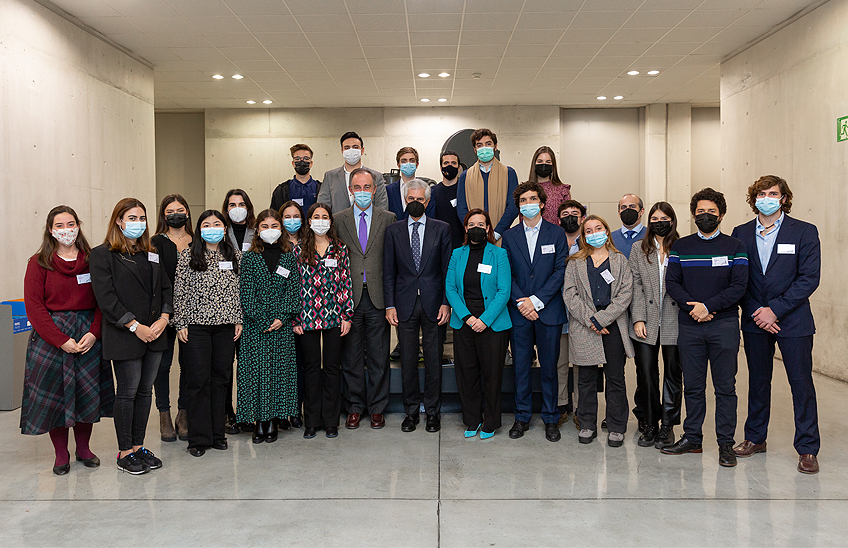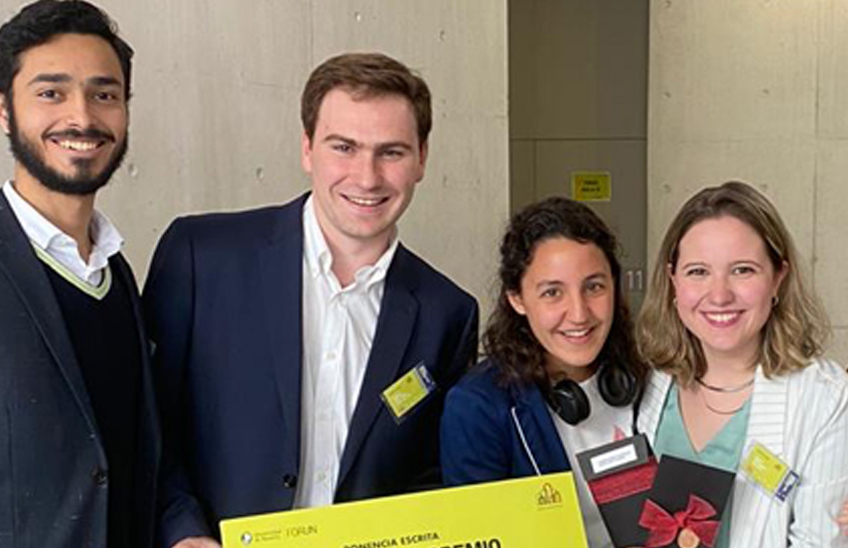Nearly a hundred students attended a roundtable on artificial intelligence and human factor organized at framework of congress FORUN
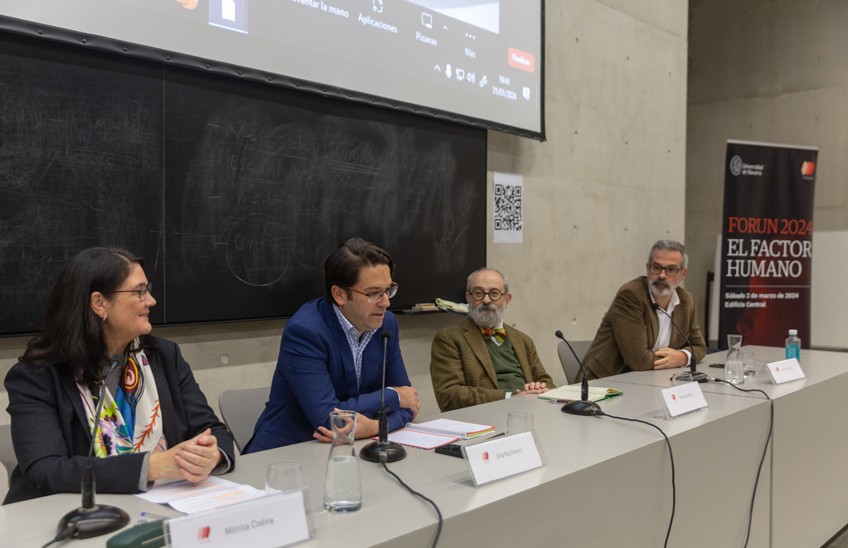
PhotoManuelCastells/From left to right: Mónica Codina, professor at School of Communication; Jürg Kaufmann, moderator of roundtable and director FORUN academic; Ricardo Piñero, professor at Philosophy and Francesc Pujol, from School of Economics and Business Administration.
02 | 02 | 2024
In the framework of FORUN, the congress of students for students that takes place annually at the University of Navarra, a roundtable about artificial intelligence has taken place. Nearly a hundred people, most of them students, gathered at quotation in classroom 6 of Communication to listen to professors Ricardo Piñero, from School of Philosophy and Letters; Mónica Codina, from School of Communication; and Francesc Pujol, from School of Economic and Business Sciences. The roundtable, degree scroll "The importance of the human factor in the age of artificial intelligence", was moderated by Jürg Kaufmann, professor at School of Communication and director academic of FORUN.
One hour was enough to put on the table different ways of looking at artificial intelligence from the human prism, and to leave the door open to many other ways of approaching topic. If the session stood out for anything, it was for that very reason: there will always be another look to take, another twist to give to the question of A.I., because the human factor cannot be summarized in a couple of theories. Because three speakers are not enough to give a sentence final... but they are enough to guide a response.
Mónica Codina opened discussion with a very clear idea: that the human being is manager of the conditions in which he lives. A.I. is nothing more than an invention of our own, but of course, sometimes inventing entails a problem. Man," Codina pointed out, "is capable of creating something more powerful than himself". He also affirmed that "sometimes our own actions are beyond us, they get out of our hands", that is why he appealed to the responsibility of human beings to create their own conditions of life, and to ask ourselves what kind of society we want to have a happy life, subject . "Ethics belong to people and not to things. We are the only ones who can answer for what a machine does," he concluded.
Ricardo Piñero began his speech by defending our species: "How can A.I. be more powerful than us? It is not. What it does is to give us more power". Professor Piñero also spoke of our condition as human beings, of the need to know ourselves and our limits. "With A.I. we believe that we no longer have uncertainty, as if everything were safer." Faced with this, he criticized the excessive importance given to the need to know more and more: "It's good to know things, but is that alone going to make us happy? What about beauty and aesthetics?". He concluded by defending that what is proper to man is not to know or master everything: "We will never reach the level of a machine because we are different things. We are not the answers we get in a second, but the questions we ask ourselves".
The session ended with a speech by Francesc Pujol, who shared with the audience something that, at first, puzzled them: "In my classes I force students to use Chat GPT". According to Professor Pujol, "the important thing is not what A.I. can tell us, but what it suggests to us". He also stated that artificial intelligence is nothing more than a tool that we can include in our learning and defended the use of Chat GPT for its positive impact on human beings, "because it forces us to question things. It is not a conversation with a machine, but with yourself".
